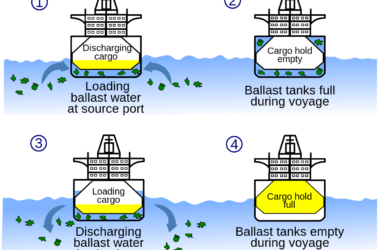Alternative Fuels: In recent years, there has been a growing concern about the impact of fossil fuels on the environment, and the need for cleaner and more sustainable sources of energy. As a result, many researchers and scientists have been exploring alternative fuels that can reduce the dependence on traditional fossil fuels and mitigate their negative impact on the environment.
In this article, we will explore some of the top alternative fuels that have the potential to replace traditional fossil fuels and provide a cleaner and more sustainable source of energy.
- Biofuels
Biofuels are derived from organic materials such as crops, animal waste, and forestry residues. They are considered a renewable source of energy since they can be replenished and are carbon-neutral, meaning they do not contribute to greenhouse gas emissions. The two primary types of biofuels are ethanol and biodiesel.
Ethanol is derived from crops such as corn, sugarcane, and wheat. It is commonly used as a fuel additive in gasoline and can also be used as a standalone fuel in certain vehicles. Biodiesel, on the other hand, is made from vegetable oils or animal fats and can be used as a direct substitute for diesel fuel.
- Hydrogen Fuel Cells
Hydrogen fuel cells are another alternative fuel source that has gained popularity in recent years. They work by converting hydrogen into electricity, with water being the only byproduct. Hydrogen can be produced from a variety of sources, including natural gas, biomass, and renewable energy sources such as solar and wind power.
Hydrogen fuel cells are already being used in some vehicles, including buses and cars, and have the potential to revolutionize the transportation industry. They are also being explored as a potential source of power for homes and businesses.
- Solar Energy
Solar energy is one of the most widely known alternative energy sources. It is derived from the sun’s radiation and can be converted into electricity using photovoltaic cells. Solar energy is a renewable source of energy, and it does not produce any harmful emissions, making it an environmentally friendly alternative to fossil fuels.
Solar panels can be installed on homes, businesses, and even vehicles to provide a reliable source of energy. Although the initial installation costs can be high, the long-term benefits of using solar energy can outweigh the initial investment.
- Wind Energy
Wind energy is another renewable source of energy that has gained popularity in recent years. It is derived from the wind’s kinetic energy, which can be converted into electricity using wind turbines. Wind energy is clean, abundant, and readily available, making it an attractive alternative to fossil fuels.
Wind turbines can be installed on land or offshore, and they can provide a significant amount of energy to homes, businesses, and even entire communities. However, like solar energy, the initial installation costs can be high.
- Geothermal Energy
Geothermal energy is derived from the heat generated by the earth’s core. It is a renewable source of energy that can be used for heating and cooling homes, businesses, and even entire communities. Geothermal energy is clean and does not produce any harmful emissions, making it an attractive alternative to fossil fuels.
Geothermal heat pumps can be installed in homes and businesses to provide a reliable source of energy for heating and cooling. Although the initial installation costs can be high, the long-term benefits of using geothermal energy can outweigh the initial investment.
Conclusion
Alternative fuels offer a promising solution to the challenges posed by traditional fossil fuels. Biofuels, hydrogen fuel cells, solar energy, wind energy, and geothermal energy are just a few of the top alternative fuels that have the potential to replace traditional fossil fuels and provide a cleaner and more sustainable source of energy. While each of these alternative fuels has its own unique benefits and challenges, their collective potential to mitigate climate change and reduce our dependence on nonrenewable sources of energy is enormous. As we continue to explore and invest in alternative fuels, we can create a more sustainable future for ourselves and for future generations.
Similar Articles
- Waterspout: A Guide to Understanding this Weather Phenomenon
- Beat the Heat: Tips for Handling Really Hot Weather
Frequently Asked Questions About Alternative fuels
Q: What are alternative fuels?
A: These fuels are non-traditional sources of energy that can be used as a substitute for traditional fossil fuels, such as gasoline and diesel.
Q: Why are alternative fuels important?
A: These fuels are important because they are cleaner and more sustainable than traditional fossil fuels. They can help reduce greenhouse gas emissions, improve air quality, and decrease our dependence on nonrenewable sources of energy.
Q: What are the benefits of using alternative fuels?
A: The benefits of using this fuels include reducing greenhouse gas emissions, improving air quality, decreasing our dependence on nonrenewable sources of energy, and creating new jobs in the clean energy industry.
Q: What are some examples of alternative fuels?
A: Examples of these fuels include biofuels, hydrogen fuel cells, solar energy, wind energy, and geothermal energy.
Q: Are alternative fuels more expensive than traditional fossil fuels?
A: The cost of these fuels varies depending on the source and technology used. While some alternative fuels may be more expensive than traditional fossil fuels, others may be less expensive or even cost-competitive.
Q: Can alternative fuels replace traditional fossil fuels entirely?
A: It is unlikely that this fuels will replace traditional fossil fuels entirely in the near future, but they can certainly play a significant role in reducing our dependence on nonrenewable sources of energy and mitigating the negative impact of fossil fuels on the environment.
Q: What are some challenges associated with using alternative fuels?
A: Some challenges associated with using these fuels include high upfront costs, limited availability and infrastructure, technological limitations, and the need for ongoing research and development.
Q: What is the future of alternative fuels?
A: The future of this fuels looks promising, as more countries, companies, and individuals are recognizing the need to transition to cleaner and more sustainable sources of energy. Continued investment in research and development, infrastructure, and policies that support the adoption of alternative fuels will be critical in realizing their full potential.










